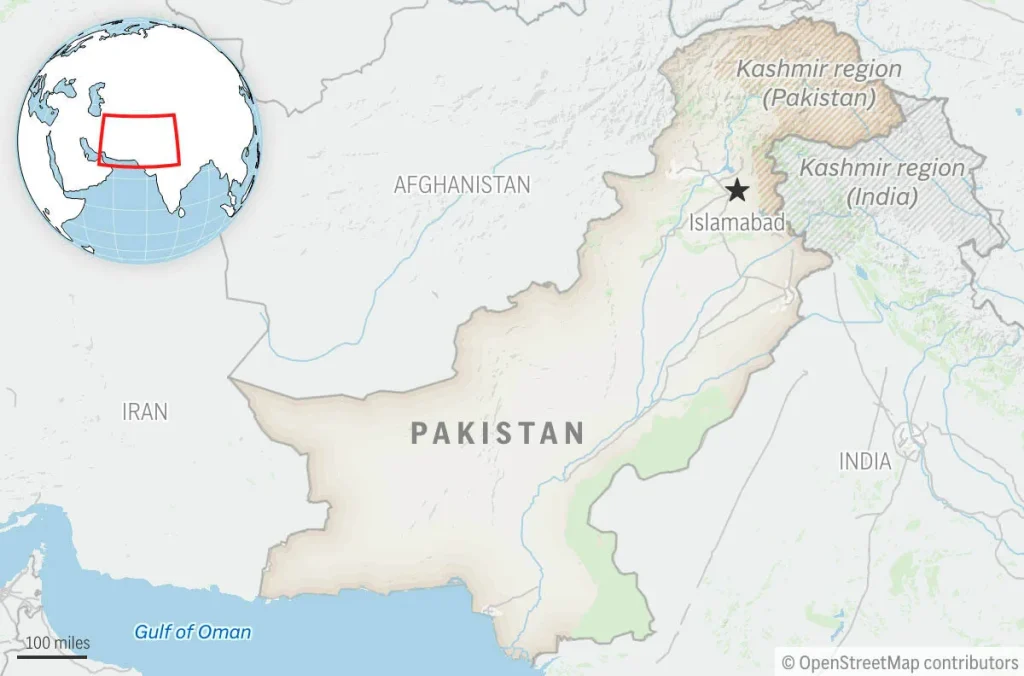
A deadly suicide bombing and militant assault struck a Pakistani military compound on Friday in the northwestern city of Mir Ali, near the volatile Afghan border, intensifying fears of renewed instability in the region. Authorities said at least three militants were killed after a fierce gunbattle that followed the explosion.
The assault, carried out by a suicide car bomber backed by the Tehrik-e-Taliban Pakistan (TTP), targeted a sprawling army and security facility in Khyber Pakhtunkhwa province, a known hotspot for militant activity.
According to Irfan Ali, a senior local police official, the massive blast caused significant damage to nearby residential structures and was followed by heavy exchange of gunfire as security forces responded swiftly to neutralize the attackers.
Pakistan Taliban Claims Responsibility for Attack
Preliminary reports indicate that the Pakistani Taliban, also known as TTP, orchestrated the assault as part of its ongoing campaign against government and military installations. The group has not yet issued an official statement, but security sources told local media that the attackers were likely affiliated with TTP’s North Waziristan network, which operates along the porous Pakistan–Afghanistan border.
“It was a coordinated attack aimed at breaching the perimeter of a military compound,” a police official told reporters, speaking on condition of anonymity due to security restrictions. “Security forces responded immediately, preventing greater casualties.”
Authorities have not confirmed whether any Pakistani soldiers were killed or injured, and the military has not released an official statement as of Friday afternoon.
Attack Comes Amid Fragile Ceasefire Between Pakistan and Afghanistan
The bombing took place just days after Pakistan and Afghanistan agreed to a temporary ceasefire, following intense cross-border clashes earlier this week that killed dozens and injured hundreds on both sides.
The three-day truce, which began Wednesday and is due to expire Friday evening, was reportedly brokered with help from “friendly countries”, urging both sides to extend peace efforts. Qatar has offered to host peace talks between Islamabad and Kabul in Doha, though neither government has publicly confirmed the proposal.
The latest violence risks derailing fragile diplomatic progress and worsening the already tense relationship between the two neighboring nations.
Surge in Terror Attacks Since January
Pakistan has faced a sharp resurgence of militant violence in 2025, with most attacks attributed to the TTP, an umbrella organization of Islamist militants seeking to overthrow Pakistan’s government and impose strict Sharia law.
Security analysts say the militant escalation follows years of relative calm after major counterterrorism operations in the region. The TTP has regrouped since the Afghan Taliban’s takeover of Kabul in 2021, with Pakistani officials claiming that TTP fighters are sheltering inside Afghanistan — an allegation that Kabul denies.
Pakistan’s military and police have launched a series of anti-militant operations in Khyber Pakhtunkhwa and Balochistan over the past week, killing at least 88 suspected militants, according to official figures.
Cross-Border Tensions and Regional Implications
This week’s border clashes were among the deadliest since 2021, when the Taliban regained control of Afghanistan after the withdrawal of U.S. and NATO troops.
Tensions surged last week when Afghanistan accused Pakistan of carrying out an airstrike in Kabul, allegedly targeting Noor Wali Mehsud, the current head of the TTP.
While Islamabad has neither confirmed nor denied the strike, Pakistani security officials privately maintained it was aimed at eliminating “high-value targets” linked to the TTP insurgency.
In response, the Pakistani Taliban released a video Thursday, claiming Noor Wali Mehsud is alive and operating in northwestern Pakistan, further fueling uncertainty about the group’s strength and reach.
Security Concerns Deepen in North Waziristan
The Mir Ali region, once a key TTP stronghold, has witnessed a resurgence of militant activity in recent months despite extensive counterterrorism campaigns by Pakistan’s armed forces. The area’s rugged terrain and proximity to the Afghan border make it an ideal haven for insurgents crossing between the two countries.
Local residents reported hearing a massive explosion followed by heavy gunfire lasting nearly 30 minutes on Friday morning. “The blast was so strong that windows shattered across the neighborhood,” said a shopkeeper in Mir Ali. “People are terrified; they fear more attacks may come.”
Outlook: Rising Militancy Threatens Regional Stability
Security experts warn that the attack underscores the fragile security situation along the Durand Line, the mountainous border separating Pakistan and Afghanistan. Despite diplomatic efforts and military crackdowns, militant sanctuaries and smuggling networks continue to destabilize the frontier region.
With the ceasefire set to expire on Friday evening, both countries face a critical decision: extend the truce and pursue dialogue, or risk plunging back into cross-border conflict and militant escalation.
Leave a Reply